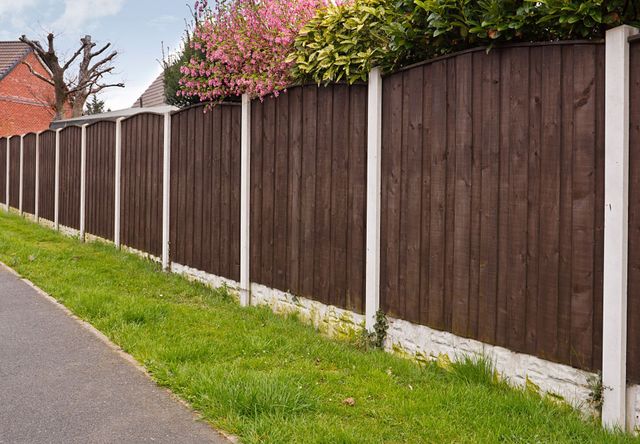All Categories
Featured

When planning to set up a fencing around your residential property, among the primary steps is comprehending the permitting demands in your area. While the procedure may appear uncomplicated, neighborhood regulations can differ considerably relying on where you live. Protecting the correct licenses prior to beginning the installation is essential to prevent potential fines, disputes with next-door neighbors, or also needing to remove your fence. Right here's what you need to understand about getting the needed authorizations for your fencing installment.
Why Do You Required an Authorization for a Fence? An authorization is frequently needed for fence installations to make sure compliance with neighborhood building regulations, zoning regulations, and safety regulations. Permitting assists local authorities maintain uniformity in community appearances, safety, and ecological factors to consider. It also guarantees that the fence does not interfere with energy lines or public areas, which it sticks to height and border restrictions.

Common Authorizations Needed for Fence Installation. Building Permit. The majority of locations call for a building permit for fencing setup, especially if the fence exceeds a certain elevation (commonly over 6 feet) or is made from non-standard materials. This authorization makes certain that your fence follows local building regulations. In some locations, the building department will inspect the website to ensure that the fence meets safety and security and architectural criteria.
Zoning License. Zoning authorizations are created to ensure that your fencing abides by local zoning legislations, consisting of troubles from residential or commercial property lines, easements, and rights-of-way. Zoning regulations differ from city to city, and in some situations, your fencing may require to be established back a particular variety of feet from the sidewalk or road. If your fence is in a historical area or other specially designated locations., a zoning authorization might likewise be necessary.

Fence Permit. In some locations, a specific "fence license" may be required. Some cities limit chain-link fences in front yards or have certain guidelines for privacy fences.
HOA Approval. You may need authorization before mounting a fence if your home is part of a property owners association (HOA) HOA standards typically include specific regulations regarding the type, elevation, color, and products for fences to keep the neighborhood's aesthetics. HOA guidelines can be more stringent than city codes, so constantly inspect their guidelines before moving ahead.
Easement or Utility Licenses. If your fencing will certainly be near or across an easement (such as an utility easement), you may need to get authorization from the energy business or various other entities that regulate the land. This is especially important if you intend to dig for fencing blog posts, as it guarantees you won't damage underground utilities like water, gas, or power lines.
Just How to Discover What Allows Are Needed. The finest method to determine which authorizations are essential for your fence setup is to call your local structure division or community workplace. They can give you with details information regarding requirements in your area. Here are a couple of steps you can take to discover:
Inspect the City or Area Web site: Numerous neighborhood federal governments give details concerning fence installation permits online. Try to find building or zoning sections on their website. Call or Browse Through City Government Offices: If the info is not conveniently available online, calling or checking out the regional office personally can clarify what's required. Speak With a Professional Contractor: If you're overloaded or uncertain by the procedure, a regional contractor or fence setup firm can assist in browsing the permitting procedure, as they're familiar with neighborhood laws. What Occurs If You Don't Obtain a License? Falling short to get the required permits can lead to a range of repercussions. In several areas, you could deal with penalties, and your fencing could be gotten to be eliminated. Additionally, if you sell your property in the future, the lack of proper permits can be a red flag for purchasers and affect the sale. Allowing guarantees that your fence is certified and aids avoid future complications.
Conclusion. Before setting up a fence around your property, it's vital to check whether a license is required in your location. Structure licenses, zoning authorizations, HOA authorization, and energy permissions might all play a role in your fence installation process. Making the effort to study and obtain the needed authorizations will not only make certain that you're complying with regional policies, however additionally aid secure your financial investment and keep the honesty of your building.
Latest Posts
Unparalleled Quality and Custom-made Solutions for each Home
Published Apr 20, 25
1 min read
Unlock Great Deals with Montclare Auto Repair Specials - Available for a Short Time!
Published Apr 20, 25
2 min read
Comprehensive Defense for Your Satisfaction
Published Apr 20, 25
1 min read
More
Latest Posts
Unparalleled Quality and Custom-made Solutions for each Home
Published Apr 20, 25
1 min read
Unlock Great Deals with Montclare Auto Repair Specials - Available for a Short Time!
Published Apr 20, 25
2 min read
Comprehensive Defense for Your Satisfaction
Published Apr 20, 25
1 min read